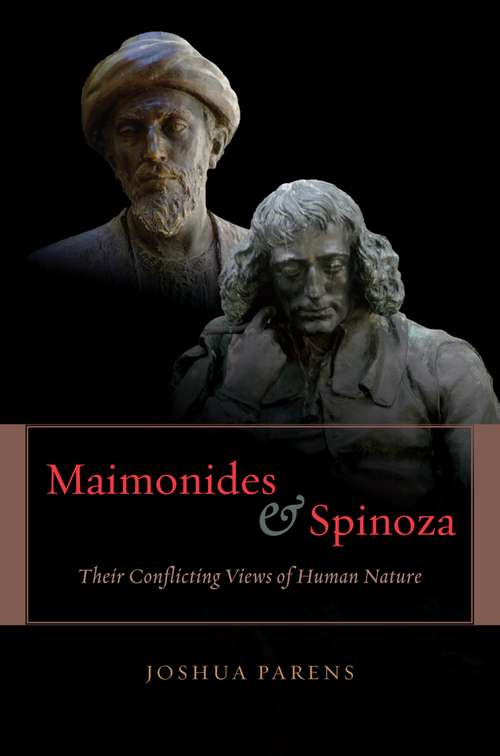Maimonides and Spinoza: Their Conflicting Views of Human Nature
By:
Sign Up Now!
Already a Member? Log In
You must be logged into Bookshare to access this title.
Learn about membership options,
or view our freely available titles.
- Synopsis
- Until the last century, it was generally agreed that Maimonides was a great defender of Judaism, and Spinoza--as an Enlightenment advocate for secularization--among its key opponents. However, a new scholarly consensus has recently emerged that the teachings of the two philosophers were in fact much closer than was previously thought. In his perceptive new book, Joshua Parens sets out to challenge the now predominant view of Maimonides as a protomodern forerunner to Spinoza--and to show that a chief reason to read Maimonides is in fact to gain distance from our progressively secularized worldview. Turning the focus from Spinoza's oft-analyzed Theologico-Political Treatise, this book has at its heart a nuanced analysis of his theory of human nature in the Ethics. Viewing this work in contrast to Maimonides's Guide of the Perplexed, it makes clear that Spinoza can no longer be thought of as the founder of modern Jewish identity, nor should Maimonides be thought of as having paved the way for a modern secular worldview. Maimonides and Spinoza dramatically revises our understanding of both philosophers.
- Copyright:
- 2012
Book Details
- Book Quality:
- Publisher Quality
- ISBN-13:
- 9780226645742
- Publisher:
- The University of Chicago Press
- Date of Addition:
- 11/09/15
- Copyrighted By:
- The University of Chicago Press
- Adult content:
- No
- Language:
- English
- Has Image Descriptions:
- No
- Categories:
- History, Nonfiction, Biographies and Memoirs, Literature and Fiction, Religion and Spirituality, Social Studies, Language Arts, Philosophy
- Submitted By:
- Bookshare Staff
- Usage Restrictions:
- This is a copyrighted book.
Reviews
Other Books
- by Joshua Parens
- in History
- in Nonfiction
- in Biographies and Memoirs
- in Literature and Fiction
- in Religion and Spirituality
- in Social Studies
- in Language Arts
- in Philosophy
